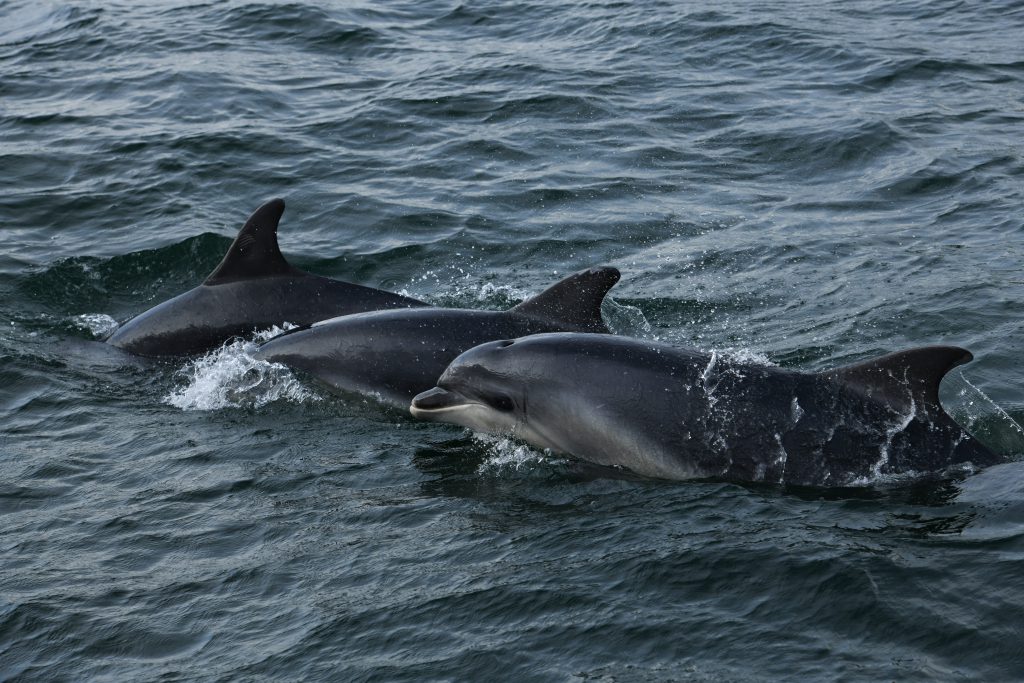Water temperatures off Ireland’s west coast were unprecedented this April and May. A deadly combination of the climate crises mixed with the natural climate variability El Nino brought sea temperatures to their highest on record since 1850. Understanding to what extent this will affect waters off the Irish coast and its ecosystems remains to be seen. However, a study published earlier this year investigating the influence of temperature and marine heat waves on the home range of bottlenose dolphins in the Mediterranean Sea gave us an insight into what we could expect here.
The study found that the home range and even group size of a local population of bottlenose dolphins were negatively influenced by warming temperatures between 2017 and 2020 compared to 2013-2020, when waters were, on average, 1.34 degrees lower and marine heatwaves shorter in duration. This change meant the dolphins had to widen their home ranges to find suitable prey.
The paper offered a solution to mitigate the effects of climate change on coastal dolphins by using marine protected areas to examine the influence of warming on the ecological status of the dolphins foraging habitats and their prey.
Marine Protected Areas can help increase ecosystem resilience allowing habitats and species to rebuild and grow, ensuring that Ireland’s coastal bottlenose dolphins, like those in the Shannon Estuary and the West Connacht population, don’t face the same adverse effects of a warmer sea.
It is evident the climate is changing, and along with it, the global environment. Still, with a lack of monitoring and little to no management plans in any of Ireland’s protected areas, our MPAs are rendered meaningless paper parks and lines on maps. The government are currently developing new marine protected area legislation. A bill the government promised to release to the public by July 2023. Still, with the Dáil now in summer recess and with no sign of the bill, the IWDG can only hope the government start taking our environmental obligations seriously, introduce the bill when they reconvene in mid-September and start treating it as a priority.
La Manna, G. et al. (2023) ‘Not only wide range shifts: Marine warming and heat waves influence spatial traits of a Mediterranean common bottlenose dolphin population’, Estuarine, Coastal and Shelf Science, 285, p. 108320. doi: https://doi.org/10.1016/j.ecss.2023.108320.

